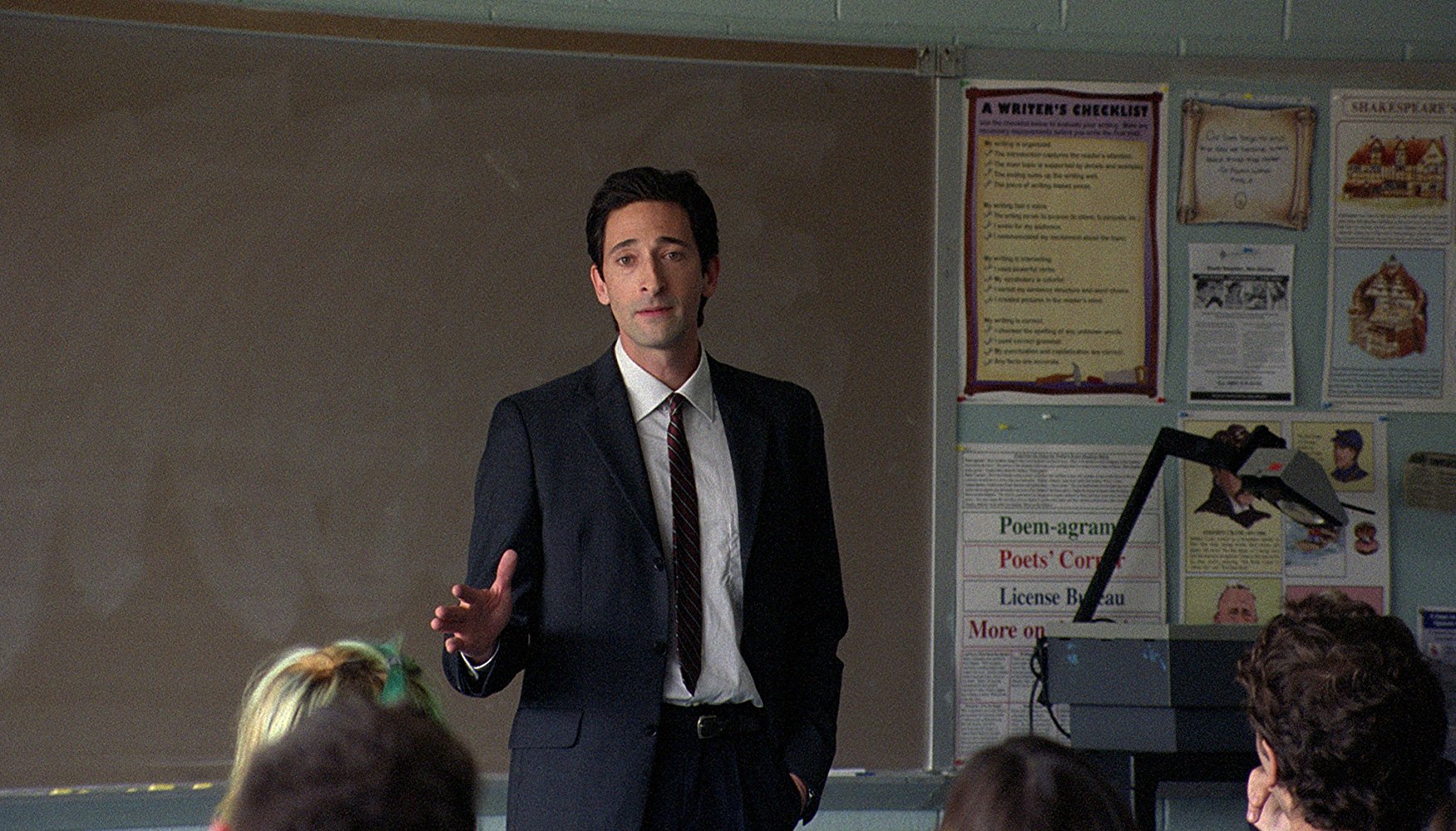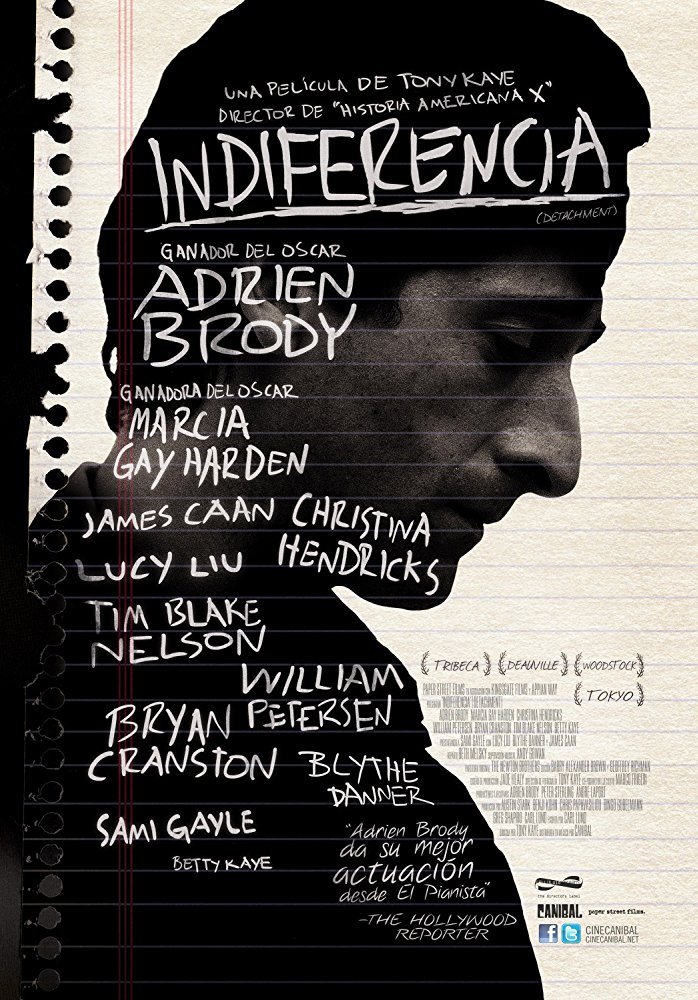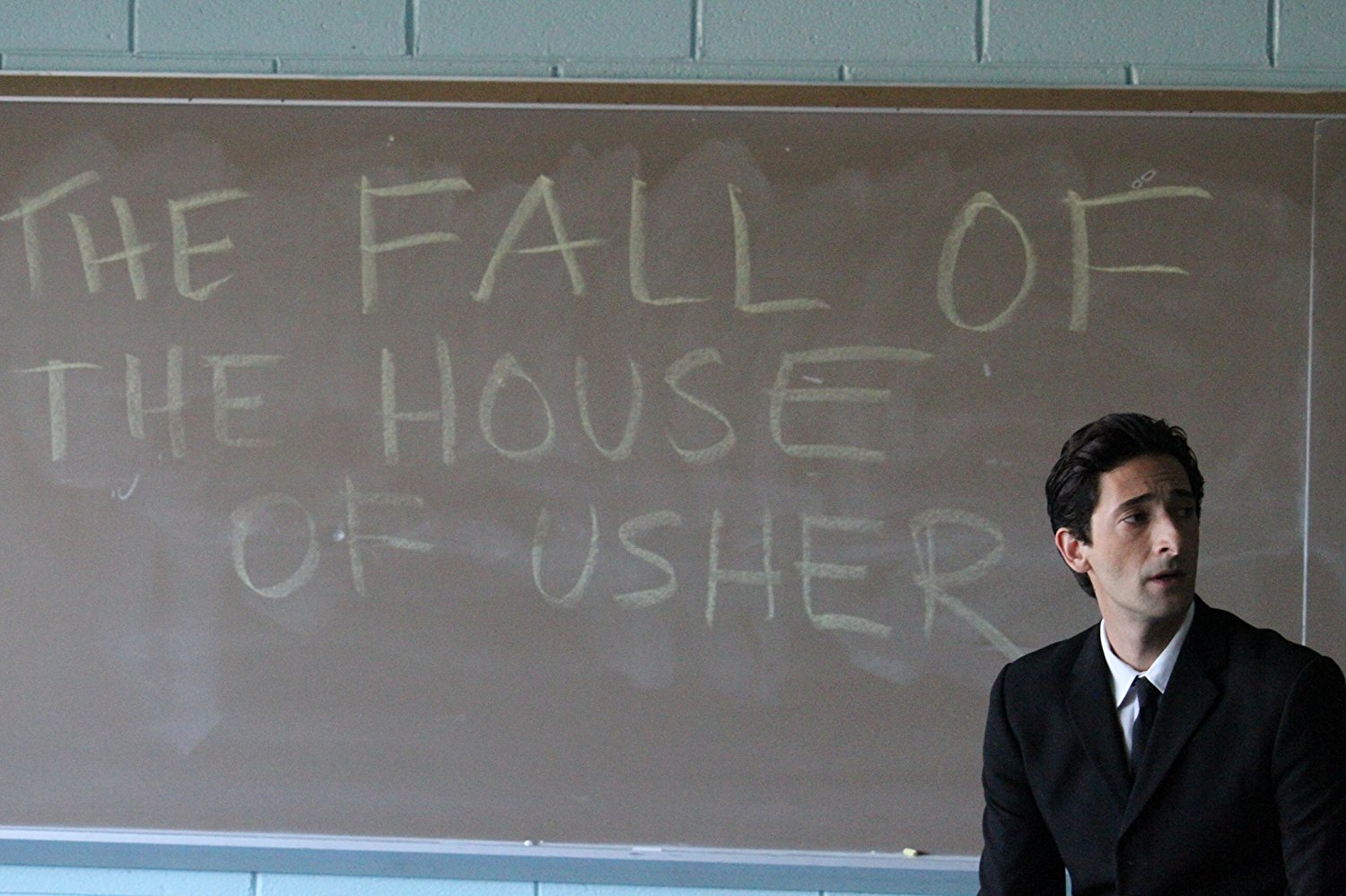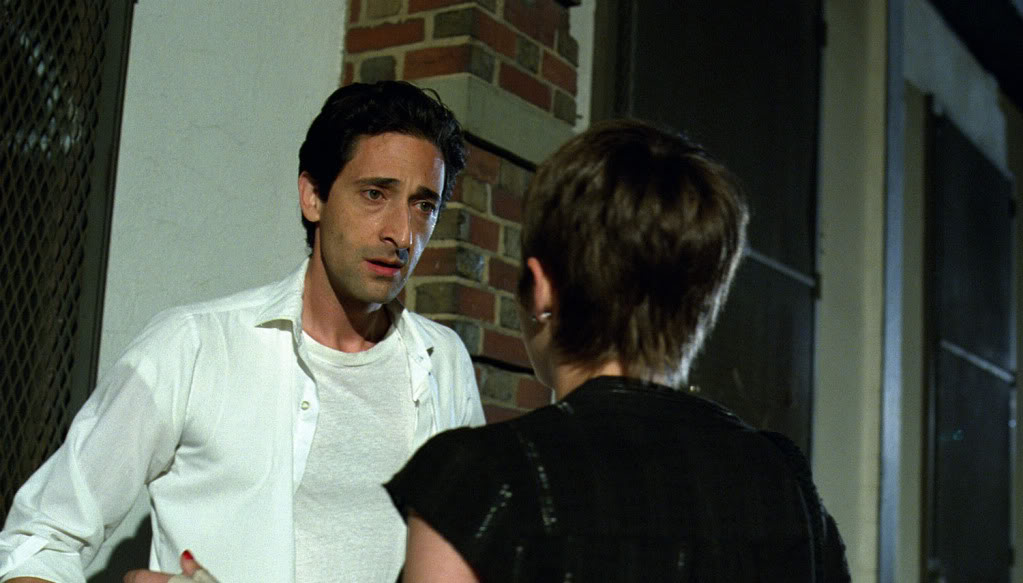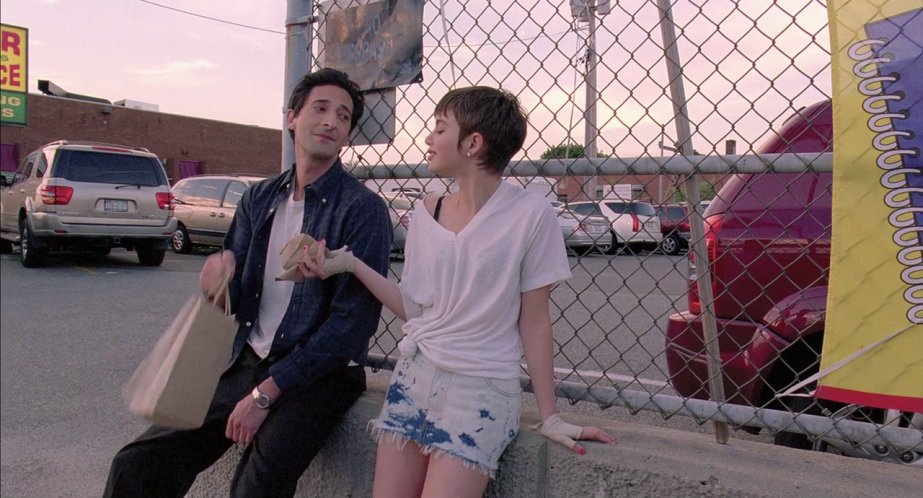[spoilers follow] It is readily apparent from the first that Henry Barthes is very good at what he does. So much so we ask, why is he a substitute teacher. Despite his obvious skills, he is detached from his students, their schools, the faculty, the street waif (Erica) he takes in, his mother who committed suicide, and perhaps a large cause of his ...
Show more »
[spoilers follow] It is readily apparent from the first that Henry Barthes is very good at what he does. So much so we ask, why is he a substitute teacher. Despite his obvious skills, he is detached from his students, their schools, the faculty, the street waif (Erica) he takes in, his mother who committed suicide, and perhaps a large cause of his detachment, his grandfather whose care he supervises. The weight of all this he drags around with him wherever he goes, in his manner and in his soliloquies. To make matters worse, he recoils from comforting one of his female students (Meredith) when found breaking one of our minor modern taboos about teachers touching students. This causes him to have Erica taken away for fear of his being judged of even greater trespass on those taboos by living with her in his apartment--even though he was sleeping on the floor.But when Meredith commits suicide in front of him, it spurs him to action concerning Erica, which leads to one of the most evocative moments in film history without a line being spoken, and certainly a great upside to an otherwise down film about our education system and the part people like Henry play in it. We last see Henry as shown on the poster, reading from the opening of Poe's The Fall of the House of Usher to an empty, trashed school room for, which it is a superb metaphor. Henry and Erica have been each other's salvation, but unfortunately, that doesn't extend to the schools or their students, faculty, and especially the parents who are so severely detached from their own children and from themselves.
Show less «

